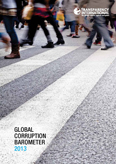Guyana : Public Expenditure Review
Since independence in 1966,
Guyana's economy has gone through a state control of
major productive sectors, and financial institutions -
including controls of prices, credit, and foreign exchange -
to a combination of political/social unrest, with terms of
trade deterioration, and slow economic growth. This led
Guyana to become the fourth poorest country in the Western
Hemisphere, despite its rich endowment in mineral resources,



